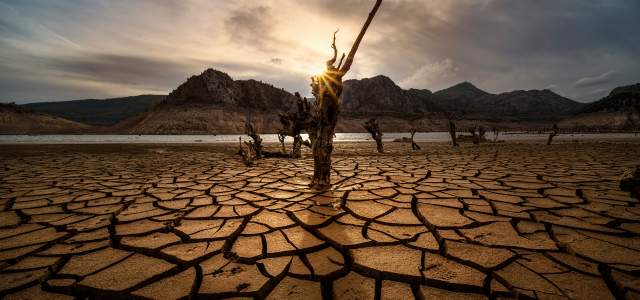Following the preparation meeting that was held on 18 July 2023, the Ministry of Planning (BAPPENAS) has successfully organised the kick-off meeting (online) for the implementation of the Water Scarcity Program in Indonesia. Held on 21 August 2023, the Kick-Off meeting was followed by more than 96 participants, representing decision-makers from technical and non-technical ministries, who are dealing with the issue of water.

Picture: Mr. Mohammad Irfan Saleh (second from the left), the Director of Water Resources Ministry of National Development Planning led the kick-off Meeting
The kick-off meeting discussion centred on 4 agenda. The first was to introduce the Water Scarcity Program (WSP) phase 2 by FAO Regional Office Asia and The Pacific. The second agenda summarised the work plan and information on the establishment of the National Multidisciplinary Team (NMT) by GWP-SEA/WSI, followed by a presentation on water accounting and allocation by Future Waters. The last presenter from Alluvium explained the pilot project for water accounting and allocation.
Led by Ms Caroline Turner from FAO, the presentation covered issues on the increase of water scarcity in the Asia Pacific Region. Utilizing a regional approach, the WSP is trying to identify the nature of water scarcity issues across the region whether there will be similarities and how the country’s experiences through policy instruments and management can be shared and adapted from one country to another. For the year 2023, the Project in Southeast Asia will cover the country of Cambodia, Indonesia, Thailand, and Viet Nam.
The initial key findings, Indonesia experiencing three types of water scarcity: too variable water, over-utilisation, and poor water quality. Water scarcity in Indonesia is driven by rapid demographic thus increasing demand for food and expanding industry, shifting in livelihood also motivated by industrialisation and rapid urbanisation, and climate change. Operation and maintenance of irrigation infrastructure continue to be problematic in Indonesia, requiring continued subsidy and cyclic investment in rehabilitation and modernisation of existing works, in parallel to clear needs for further infrastructure development in new granaries. This comes at a cost of effective and sustainable use of water resources and complicates water accounting and allocation. Thus, sustainable financing of operation and maintenance is critical. Ensuring sufficient quality and quantity of water supplies for services and industry is critical for economic growth. Industry as a water user is a competitor to agricultural water users, so a clear strategy on how water can be sustainably supplied to the industrial sector is needed. Poor regulation, monitoring and enforcement of industrial water pollution worsen the impacts of water scarcity and stress in key river basins in Java. Lastly, support from investment and capacity building is needed to strengthen monitoring and evaluation systems as it can help to assess the impacts of policies, and their effectiveness and to enable adaptive management of water scarcity.
The second presentation relayed the message on the work plan and the importance of establishing the National Multidisciplinary Team (NMT). Mr. Fany Wedahuditama who represents Water Stewardship Indonesia (WSI) and GWP-SEA explained the NMT will play a role in developing a roadmap, ensuring coherency in water scarcity governance, and developing a water accounting and a sustainable water allocation. The NMT is planned to be differentiated according to the level of authority. The 3 levels of NMT are decision-makers (Ministerial level), inter-ministerial steering committee, inter-ministerial technical committee, and working groups. Over the project cycle, at least 6 outputs will be produced: the establishment of NMT, water scarcity action plan, water scarcity declaration, capacity on water accounting and allocation, water accounting roadmap and water allocation framework (pilot), and regional learning exchange platform.
The third presentation explained the capacity building, led by Future Waters and Alluvium. Mr Hugh Turral on the issue of capacity building described the training material will consist of understanding the basics of water accounting, water accounting in agricultural systems at different scales, as well as collecting and analysing spatial data for developing a water account. The first one and second training material will be implemented on 29 August – 1 September 2023. And the schedule for the third training material will be decided later. The presentation from Alluvium focused on the water accounting roadmap from a pilot project. This includes the decision on pilot location (river basins).
